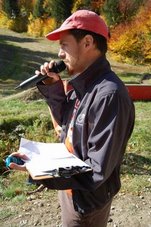Most of you are already on the road and/or getting ready to get up ridiculously early and hit the road for the season opener at Rutgers. I can tell this even without previous experience because my steady stream of incoming cycling email has tapered off. The quiet before the storm.
It's taken a lot to get to this point. For those that are interested, here are the routine conference topics we spend time on day in/day out:
- Race permitting
- Race schedule revisions
- Race course revisions
- Officiating assignments, season ref selection
- Rider upgrades
- Rules and general questions
- Conference meeting plans, coordinating (thx Yale, Bard!)
- Conference & USAC documentation, website updates
- Assisting other conferences as possible
These are all of the non-routine issues we've spent significant time on lately:
- CD oversight of permitting/flyer release process
- CD/LA summit inefficiencies, nationals presence and meetings/workshops
- Race promoter deposits w/ conferences, required USAC infrastructure
- Field limits and collegiate relationship
- Licensing of riders from foreign universities
- Upgrade mileage requirements for Women's B and Men's D racers
- Waivers/liability for Intro coaches
- Categorization verification, student status checking
- Tightening of prime rules for collegiate crits
- CD oversight of season scoring
- CX Nationals category/experience requirements
- Officiating improvement programs
- Waivers, season numbers
- Nationals date selection
- Nationals quality oversight
- MTB team relay format (e.g., new ECCC format)
- MTB Intro clinics (e.g., new ECCC format)
- Points allocation and division policies for triple-split fields
- Pre-registration policies, esp. for large teams
- Pre-season women's racing clinics
- Aero equipment, esp. nats policy (e.g., draconian new ECCC policies)
- DH timing
- Road Intro curriculum, structure, scheduling
- CX season structure
- CX categorization equivalencies
- Track season structure
Clearly not all critical for tomorrow, but MTB season planning basically started three weeks ago. Track and CX better get moving soon as well to keep those seasons on the up-and-up.
So, that's about were we are. Twelve hours to go before we hit the road, about ten hours of work left to do before we go, and a generator to pick up and PA equipment to drop off on the other side of town. Fortunately the weather forecast is magnificent---when push comes to shove it's standing in the sun with the breeze in your hair, collegiate racing all around, that covers all the other times.
 (photo by ?)
(photo by ?)

